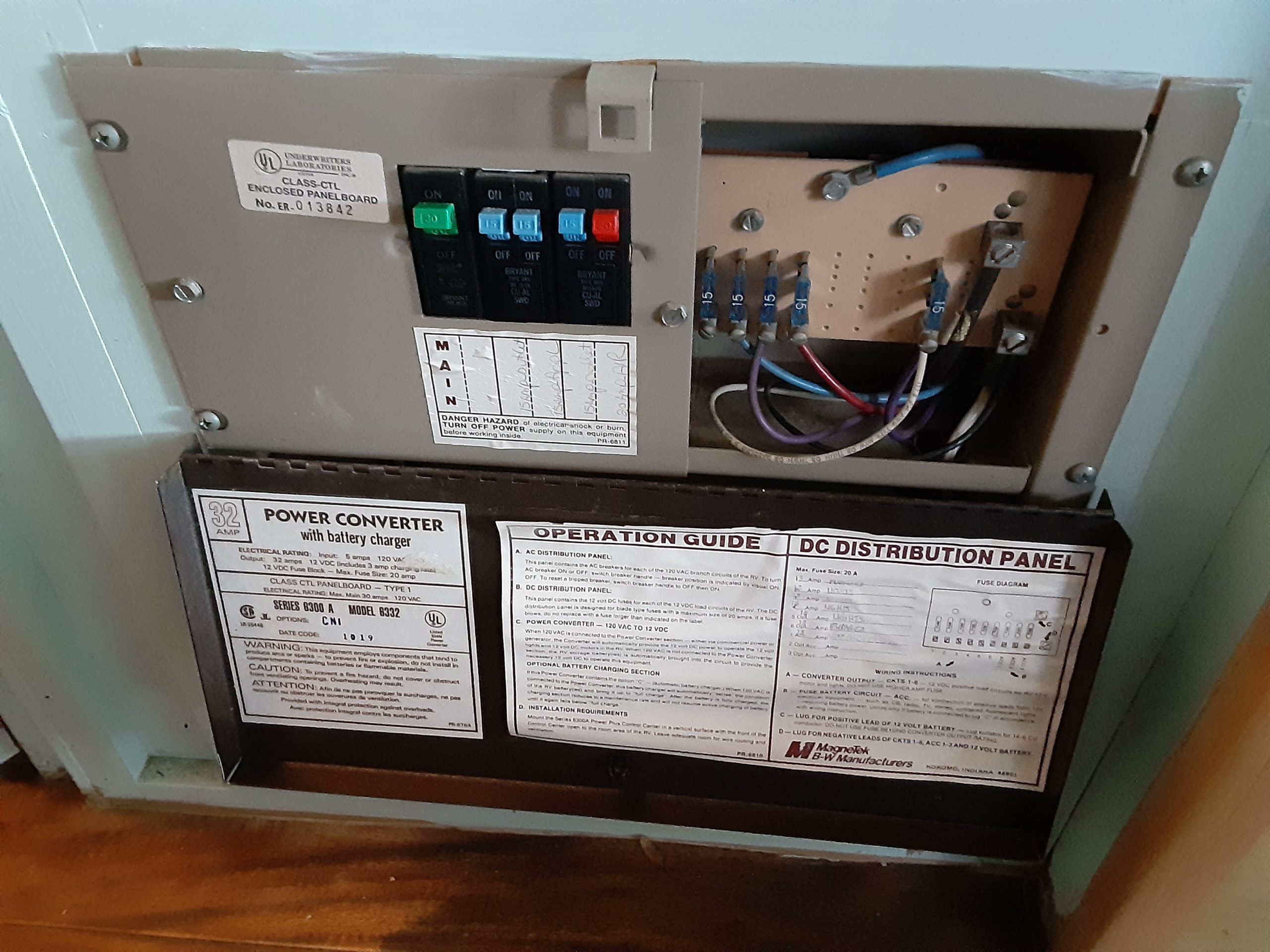Total Monthly RV Living Costs: Ranges from $1,500 to $3,500 per month. I know that sounds like a vague answer, but there are a lot of variables, like how far you travel (and how often), where you stay (and for how long), how much you spend on your RV, and your general lifestyle such as groceries/eating out/fun. you will need to stay out of vacation mode most likely! So, Full-Time RV Life: Is retirement in an RV a good choice? Depends
Not only is cheap RV living possible, but RV living can probably be much cheaper than the life you’re living in a sticks and bricks house. There are so many things you can do to cut back on expenses while maintaining an amazing nomadic lifestyle.
On the flip side, there will be many things to take into consideration before you just hit the open road. We will discuss 10 of what I believe are the most important things to think about. So, Full-Time RV Life?

Here are 10 reasons Full-Time RV Life may or may not be right for you!
RVs can cost as much as your current home
Generally, an RV’s cost to buy ranges from $35,000 to $300,000. This price can change depending on various factors like RV class, included features, and other costs. Keep reading to learn about RV costs, what influences them, and other essential factors to consider when buying an RV!
| Type of campers | Average camper price |
|---|---|
| Fifth Wheel | $70,000 |
| Class A Motorhome | $375,800 |
| Class B Motorhome | $134,000 |
| Class C Motorhome | $148,000 |
Things to take into consideration
During October and November, sales nosedive, leading to some pretty good discounts. December and January are even slower, making them the best months for RV shopping. Things are still fairly slow in February too but tend to pick back up sometime in March.
Montana has absolutely zero sales taxes. No general sales tax, no county tax, no city tax. This is what makes it the cheapest state to buy an RV. If you already have residency in Alaska, Delaware, New Hampshire, or Oregon you’re in luck because those states also have no general sales tax.
Also, buying factory-direct allows offering lower prices to the consumer, [because] the manufacturer can take the dealer’s price out of the product and give that savings to the buyer.
I know everyone loves a new shiny toy but when it comes to an RV investment, used may be the best option. Buying a used RV that’s still in good condition can save you real money. According to the website RVers Online, after factoring in depreciation, financing, maintenance, and other costs, an RV that’s three years old can cost about half the price of a new one.

Cost of RV Insurance
On average, full time RV insurance cost $1500. RV insurance costs range from $1000 to $2000 for most RVs in the US in 2019. However, RV insurance policies and the costs can vary. While a Class C RV insurance policy may only cost $1000, a Class A RV could be upwards of $2000.
This is a big item and choice when planning your future together on the road. For more insight into the best RV insurance companies please our Best insurance companies for 2021 blog.
If you own your RV, you’re only required to carry standard liability insurance, as well as personal injury protection if you live in a no-fault state.
The cost of full-time RV insurance varies based on the level and number of coverages you select, but will typically cost more than a recreational policy due to the additional liability protection you gain.
Read your policy thoroughly and know what is and is not covered.
Your RV Will Depreciate in Value
Like any new vehicle, simply driving an RV off the lot causes a huge loss in value — around 21 percent, according to Camper Report. No matter what the size, once your RV is 5 years old, it’s lost somewhere from 36 to 38 percent of its value; when it’s 10 years old, you’ll be lucky to get half of what you paid.
This is the main reason we suggest to you to research used RV’s also when looking for your new home. Some say that the bugs are worked out and repaired in a 2-4 year old RV too!
The Internal Revenue Service (IRS) allows taxpayers to depreciate recreational vehicles (RVs) using a straight-line method or an accelerated procedure. An RV is a fixed or long-term asset, meaning it is an economic resource that you most likely will use for more than a year.
Because you’re living in your RV, it qualifies as long as it fits the criteria listed in IRS publication 936. Basically, if you’re living in your RV and it has a sleeping area, cooking area, and toilet facilities, then you should be able to write off the interest on your taxes.
Your space is now his/her space living the Full-Time RV Life
Living, traveling, and working full-time with your partner is one of the most challenging aspects of tiny living, but it’s also one of the most rewarding. RV living and full-time travel can bring you closer together, but it can also quickly bring pain points in your relationship to light.
Life on the road can often get lonely, even for couples or families who travel together. Committing to the full-time RV lifestyle often means forgoing a sense of community, missing out on family events and waking up every day in a new, unfamiliar place.
Keep it simple, only bring what you really need and try to stay well organized. This will help make daily tasks more smooth and hopefully eliminate some off those silly disagreements.
Remember that communication is key and if the weather is nice you have plenty of room to give each other as much space as needed.
Taking care of your medical needs
Taking care of your medical needs is such a broad topic and has so many different scenarios. With no real-world experience at having to deal with medical issues (knock on wood), I will just provide a few links to some real-life people on the road and how they handle there needs.
Read about Full-Time RV Life from the people already doing it
RV – roadtrips.thefuntimesguide.com
An RV can be demanding to drive
While RVs can be relatively easy to drive, some RVs are harder to maneuver than others. Depending on the type of RV you choose, longer RVs can be challenging to drive. If you’re not used to driving a longer RV, you should practice turning without swiping the vehicles on either side of your RV.
The size of a motorhome can affect its drivability, but a bit of practice and some common-sense driving skills should make any motorhome easy to handle.
Remember, know your turning radius, don’t forget tail swing, secure everything inside before driving and just get some practice in an empty parking lot with some cones. Your comfort level will grow as you know what to look for as you are driving and know what situations to keep yourself out of.
Cost of fuel is going up!
Many recreational vehicle manufacturers claim their vehicles get somewhere between 10 and 20 mpg. So using an average cost of $2.50 to $4.00 per gallon of gas. With current prices a full tank of gas for your RV can be anywhere from $60 to $600.
When comparing a diesel vs. gas motorhome, diesel motorhomes are much more fuel efficient. That is partly because diesel fuel has a greater energy value than gasoline does. Its higher energy density means that diesel fuel can offer up to 10 percent better fuel economy by volume.
Which ever fuel type you decide on neither are anything to write home about.
This is just another cost to be aware of as we never really know how fuel prices will change in the future.
Costly repairs can add up quickly!
Maintenance costs depend on the wear and tear of your RV. According to Mobile Homes Parts Store, several people who lived in RVs said they spent between $500 and $1,000 a year on maintenance costs. Some RVers spent several thousand dollars a year.
New Battery – $150-$400 each
Generator – $150 to change the oil, if needing to be replaced can be anywhere from $1200-$10,000 (take care of it)
Tires – check your pressure each time you head out – rotation $75 – new tires can be anywhere from $125-$500 each (mine uses 6) Proper inflation is the single most important thing you can do on a regular basis to prolong the life of your tire and ensure safe proper operation.
New AC – $600-$1000
New refrigerator – $1000 up to $2000
This is just a few of the untimely costs that can arise at a moments notice.
If you are handy with tools and not afraid to jump in and do it yourself it can really reduce many repair costs.
How long can we expect our RV to last?
The short answer is that the average lifespan of an RV is around 20 years or 200,000 miles, whichever comes first. But the answer isn’t quite that simple. That number can vary depending on the class of your motorhome, how well you take care of it, and a few other factors.

Finding places to stay needs planning
For most finding the next place to stay for the night can really be a struggle. Planning a few months ahead can help if you are going to be traveling extensively from place to place.
If you are going to be settling to a spot for a month or so there are some extended stay locations but you still want to be planning that next stop.
You can often find areas for free-of-cost, dispersed camping on public lands. Most of the free areas are located on Forest Service Land or in Bureau of Land Management (BLM) areas, Wildlife Management Areas (WMSs), or county and city parks.
There are a lot of websites and resources out there to help you along the way. Check out are 20 must-have apps for the road that can make it so much easier.
You can’t take all your stuff with you!
If you are planning to hit the road for a life of fulltime RV living, start planning early. You can’t take it with you so you need to find out how much storage your rig will have.
You really just don’t need as much stuff as you think for daily living. Purge what you have, sell, donate or just throw away all your unwanted items.
This is not recommended but you can get a small storage unit (another monthly cost) or if you have a relative that will let you store some items with them.
You would be amazed at what you really don’t use or need. It is a simpler life to lead and less clutter makes it much easier to get off on the right foot.
Full-Time RV Life? Well, do you think it is right for you?
Final Take
Close your eyes for a moment and just think about this. It’s sunrise, you roll out of your RV, morning air feeling brisk, fire from the night before taking its last breath as it’s trying to reignite. You find your favorite chair on the site, turn it to look out over the lake and nestle in to relax. Birds chirping and fish jumping as the new day begins. This is what it’s all about!………. Now imagine a hot cup of coffee in your hand. Life just got so much better!
Coffee is a big part of our morning along with many others whether you are RVing or not. 2 boomers and a baby would like to invite you to check out our partner site and explore the many coffees and teas we have to offer @ thegrind.blog. We talk about coffee and tea showing the many benefits they provide, ways to brew it, and the best coffee and tea available.




